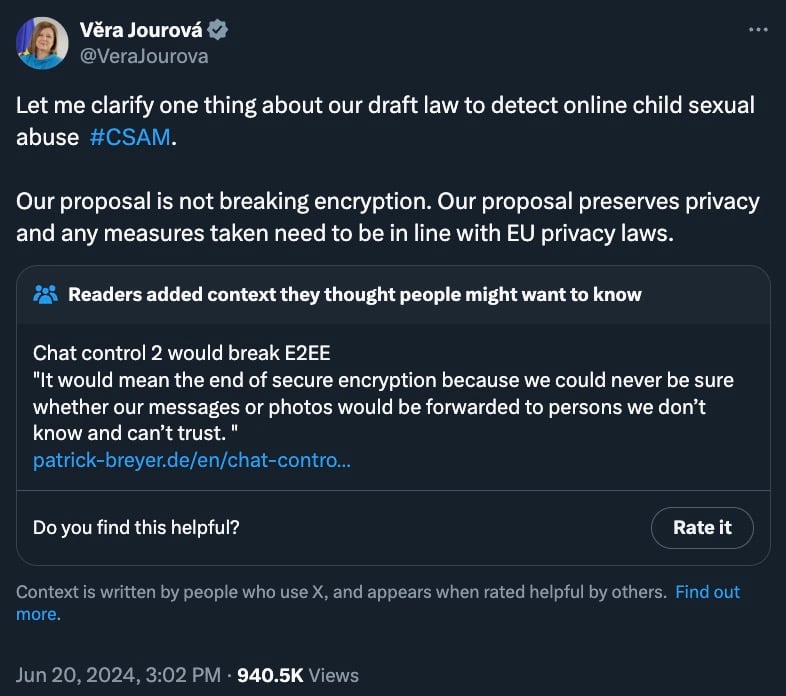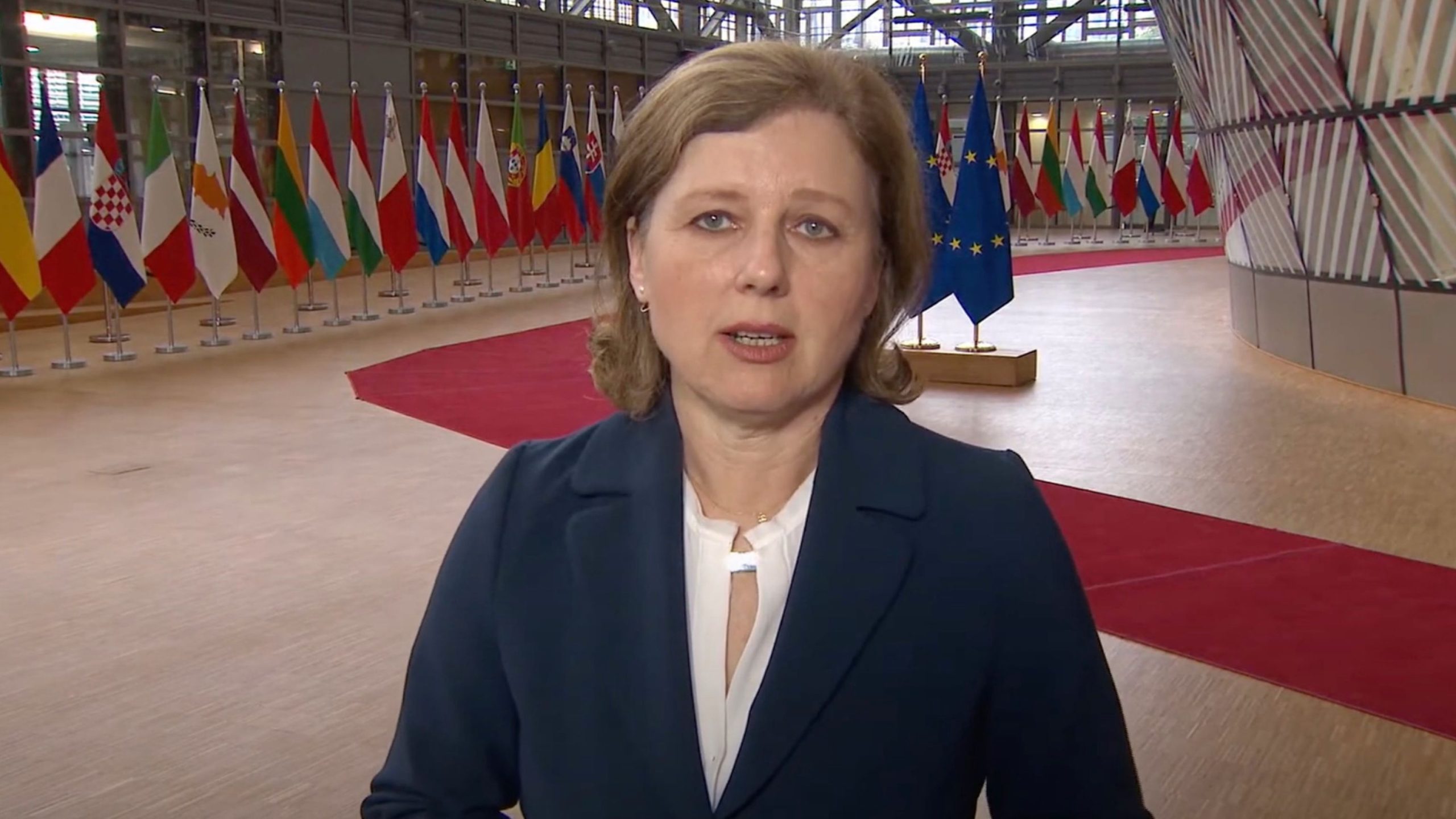Věra Jourová is not a psychologist but she decided to play one during an interview, by “diagnosing” X owner Elon Musk as a person unable to “recognize” good and evil.
But then, he apparently can, after all – because Jourová in the same breath accused him of being “a promoter of evil.”
Jourová is an EU bureaucrat on her way out, after serving as Vice President of the Commission for Values and Transparency for the past five years.
“Good riddance. If she wants to see evil, I suggest she use a mirror,” Musk shot back in a post on X, adding that Jourová is the “epitome of banal, bureaucratic evil.”
Jourová is known for pushing anti-free speech legislation such as enabling mass surveillance of private messages (which she claims is “privacy-preserving” and “not breaking encryption”), combating “disinformation and hate speech,” and even going after whoever the EU decides is a conspiracy theorist by using law enforcement.

Musk, on the other hand, has been in the cross-hairs of many governments ever since he bought former Twitter and by and large allowed free speech on the platform, while also releasing the damning Twitter Files.
But Jourová sees “hate speech” in free speech – and made sure to cite instances of antisemitism to give legitimacy to her pro-censorship stance, and to the insulting language she used at the expense of Musk and X (she referred to the platform as “the main hub of antisemitism”).
However, most of what the soon-to-be former EU commissioner brands as “hate speech” are opinions and criticism she dislikes.
Speaking for Politico, Jourová made a distinction between Musk (who she admitted she has never met) and “other tech bosses” who she said “recognize” good and evil. And, the politician revealed she is well aware of the massive power that Big Tech has – but as long as that power is in what she considers the right hands, that doesn’t seem to worry her.
However – “I’m really scared by digital platforms in bad hands,” said Jourová .
Another thing Jourová appears scared of is innovation, at least, the kind that is not fully controlled by the bloc’s restrictive legislation.
“We have to be sure that the innovations are developed to do good to people,” she said, rejecting accusations that some EU’s new laws – such as the Artificial Intelligence Act – are stifling innovation.










